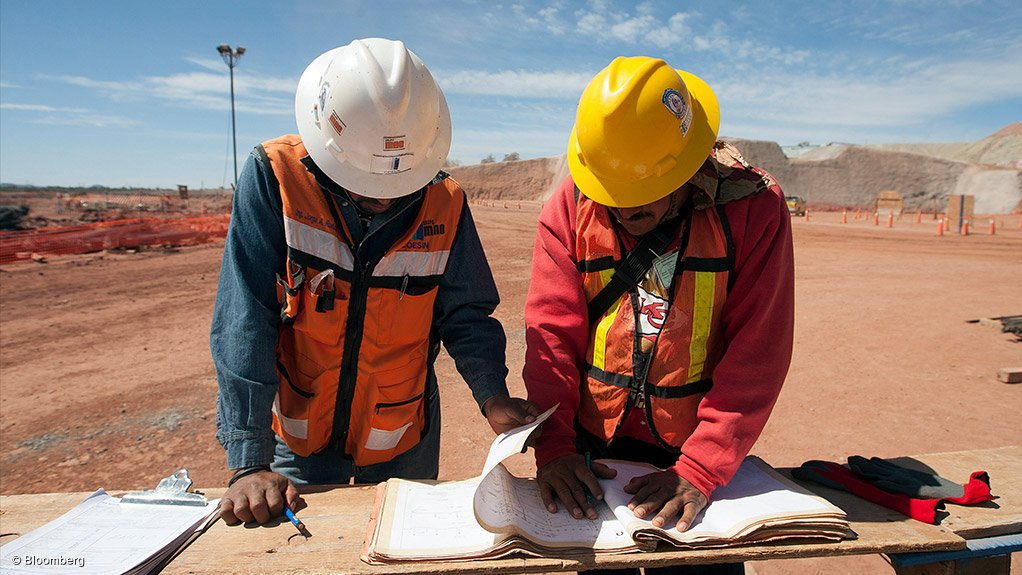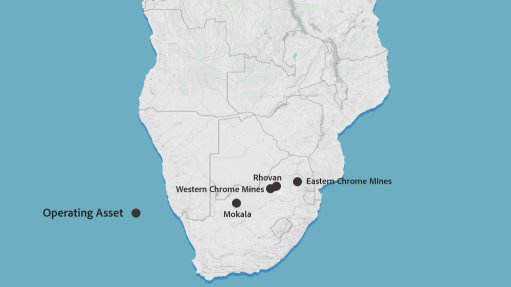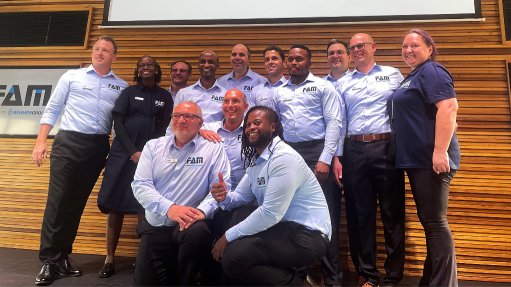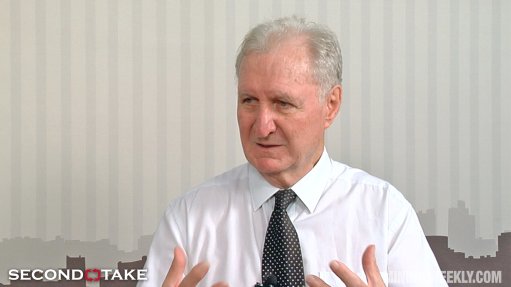Namibia mining sector is investor friendly



NEW IN NAMIBIA Namibia has attracted investment in new mining ventures, including new uranium mines
Photo by Duane Daws
GROWTH GOALS South Africa should look to share its skills to develop neighbouring countries
Photo by Bloomberg
The Namibian mining sector has become more investor friendly than South Africa, as the country has clear policies that have been consistently applied, explains Sandton-based law firm Webber Wentzel partner Jonathan Veeran.
Namibia has four policies governing mining and mineral prospecting: the Minerals Policy of Namibia, the Minerals Prospecting and Mining Act of 1992, the Minerals Development Fund of Namibia Act of 1996 and the Diamond Act of 1999.
He highlights that there are clear signs that the country is making an effort to attract Chinese, Indian and Japanese investors, among others. High-level delegations from these countries regularly visit Namibia, with specific areas of potential investment being promoted through targeted conferences, as opposed to the hosting of general conferences that try to boost investment in an industry as a whole.
“There are already high-level investors in the country, with Namibia producing around 2% of the diamonds in the world from Namibia’s resources. Further, the State-owned mining company Epangelo Mining has shares in various mining projects, with more investments being made in Namibia’s uranium mining industry,” Veeran says.
Namibia also has a large oil and gas industry, and the clear and concise mining policies make investors’ decisions easier with regard to large investments in the sector.
Veeran highlights that South Africa should look to Namibia when making larger policy decisions, such as the third iteration of the Mining Charter and the Mineral and Petroleum Resources Development Amendment (MPRDA) Bill. The current versions of the industry-disputed Mining Charter III and the MPRDA are structured for a particular political elite’s benefit, he stresses, and not for broad economic change.
“We often set broad-based black economic- empowerment (BBBEE) targets without understanding the economics behind the situation. I do think that transformation is needed; however, we need to avoid a mining lockout,” Veeran says.
When mines are forced to consistently comply with changing BBBEE requirements, companies ask for these equity investors to be locked in, which limits black shareholders from selling their shares in a mine for a predetermined period. He states that this prevents black owners from selling their shares for profit, which limits their investment portfolios.
Veeran highlights that a better way to ensure black economic empowerment is to create more jobs through enticing foreign investment. There has been rapid growth in the black middle class of Namibia through job creation, associated with a thriving mining industry, which requires infrastructure, energy and transport support industries.
“Not everyone is going to be a mining manager, but we need to create more jobs and I think Namibia has realised this through the way in which it has structured the Minerals Policy. However, Namibia has a much smaller population than South Africa,” he says.
Lessons to Learn
Veeran explains that South Africa’s policy- makers need to learn from Namibia’s concise mining charter, with regulations and legislation that aim to create the same environment.
“There must be clear rules that are not open-ended. Very little should be open to interpretation. “Further, the people who administer these pieces of legislation must be well trained and consistent so that there aren’t wildly different outcomes when applying these laws,” he says.
There also needs to be proper stakeholder engagement where communities, labour and business sit down and communicate more openly. Although, Veeran points out, the stakeholders in mining companies need to realise that whatever policy South Africa creates is not going to please everybody.
One upside of policy uncertainty in South Africa is that it has a positive influence on other Southern African Development Community (SADC) countries, owing to the number of South African engineers available.
“When sub-Sahara African countries like Namibia need to start developing new mining ventures, they can and do look to South Africa for engineering expertise on infrastructure and energy projects. We need to promote the growth of other SADC countries as well,” Veeran concludes, adding that if South Africa’s fortunes were to turn for the better, however, the growing number of companies that have a growing interest in resource beneficiation on the continent would be equipped to respond.
Article Enquiry
Email Article
Save Article
Feedback
To advertise email advertising@creamermedia.co.za or click here
Announcements
What's On
Subscribe to improve your user experience...
Option 1 (equivalent of R125 a month):
Receive a weekly copy of Creamer Media's Engineering News & Mining Weekly magazine
(print copy for those in South Africa and e-magazine for those outside of South Africa)
Receive daily email newsletters
Access to full search results
Access archive of magazine back copies
Access to Projects in Progress
Access to ONE Research Report of your choice in PDF format
Option 2 (equivalent of R375 a month):
All benefits from Option 1
PLUS
Access to Creamer Media's Research Channel Africa for ALL Research Reports, in PDF format, on various industrial and mining sectors
including Electricity; Water; Energy Transition; Hydrogen; Roads, Rail and Ports; Coal; Gold; Platinum; Battery Metals; etc.
Already a subscriber?
Forgotten your password?
Receive weekly copy of Creamer Media's Engineering News & Mining Weekly magazine (print copy for those in South Africa and e-magazine for those outside of South Africa)
➕
Recieve daily email newsletters
➕
Access to full search results
➕
Access archive of magazine back copies
➕
Access to Projects in Progress
➕
Access to ONE Research Report of your choice in PDF format
RESEARCH CHANNEL AFRICA
R4500 (equivalent of R375 a month)
SUBSCRIBEAll benefits from Option 1
➕
Access to Creamer Media's Research Channel Africa for ALL Research Reports on various industrial and mining sectors, in PDF format, including on:
Electricity
➕
Water
➕
Energy Transition
➕
Hydrogen
➕
Roads, Rail and Ports
➕
Coal
➕
Gold
➕
Platinum
➕
Battery Metals
➕
etc.
Receive all benefits from Option 1 or Option 2 delivered to numerous people at your company
➕
Multiple User names and Passwords for simultaneous log-ins
➕
Intranet integration access to all in your organisation


















